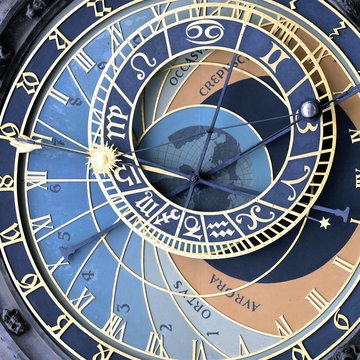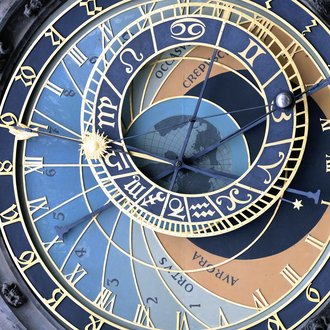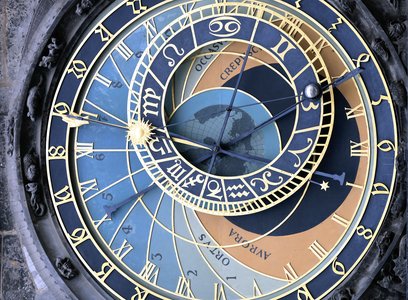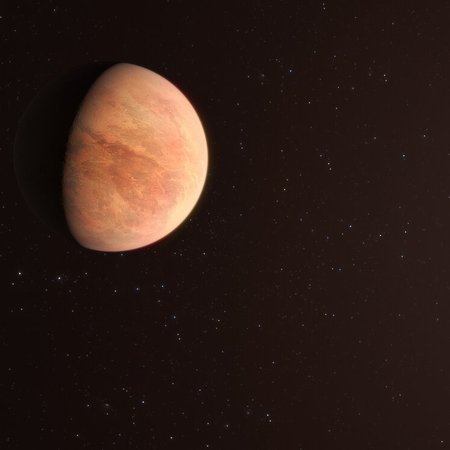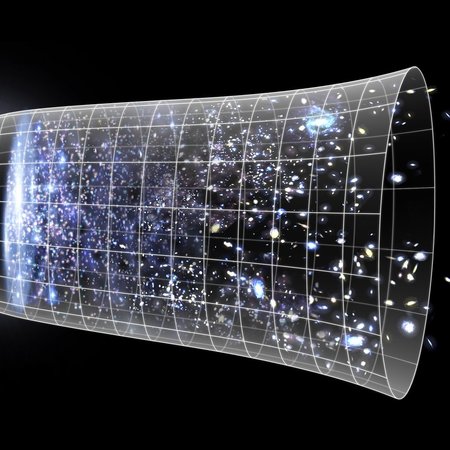Babelsberg Starry Nights Live on 18th November 2025
In the dark season, the Leibniz Institute for Astrophysics Potsdam (AIP) is once again inviting visitors to the popular Babelsberg Starry Nights. This event series is aimed at anyone interested in astronomy, regardless of prior knowledge. Researchers from the AIP will report on current topics and interesting projects from the world of astrophysics. On Tuesday, 18 November, Dr Axel Schwope will speak on ‘Cosmic Clocks’ – in German.
What is a clock? In principle, it's quite simple: a clock is something that tells us the time. Until 1967, the second was determined by astronomical observations. However, this method became too inaccurate for the ever-increasing standards of precision required of clocks. Are we able to find astronomical clocks today that are reliable enough – for example, in binary stars? If not, what do the inaccuracies tell us about the physical processes in space? We will explore these questions in the lecture, using results obtained from our own 70-cm telescope in Babelsberg. Dr Axel Schwope heads the X-ray Astronomy Working Group at the AIP. His research focuses on compact double stars, neutron stars and, in general, large-scale surveys in the X-ray and optical spectral range.
Following the lecture, visitors will have the opportunity to take part in a tour of the AIP campus. If the weather is clear, we offer observations using one of the historic reflecting telescopes.
Entry is free, no registration required.
Time: Tuesday, 18 November 2025, 7:15 pm
Location: Leibniz-Institut für Astrophysik Potsdam (AIP), An der Sternwarte 16, 14482 Potsdam
In the dark season, the Leibniz Institute for Astrophysics Potsdam (AIP) is once again inviting visitors to the popular Babelsberg Starry Nights. This event series is aimed at anyone interested in astronomy, regardless of prior knowledge. Researchers from the AIP will report on current topics and interesting projects from the world of astrophysics. On Tuesday, 18 November, Dr Axel Schwope will speak on ‘Cosmic Clocks’ – in German.
What is a clock? In principle, it's quite simple: a clock is something that tells us the time. Until 1967, the second was determined by astronomical observations. However, this method became too inaccurate for the ever-increasing standards of precision required of clocks. Are we able to find astronomical clocks today that are reliable enough – for example, in binary stars? If not, what do the inaccuracies tell us about the physical processes in space? We will explore these questions in the lecture, using results obtained from our own 70-cm telescope in Babelsberg. Dr Axel Schwope heads the X-ray Astronomy Working Group at the AIP. His research focuses on compact double stars, neutron stars and, in general, large-scale surveys in the X-ray and optical spectral range.
Following the lecture, visitors will have the opportunity to take part in a tour of the AIP campus. If the weather is clear, we offer observations using one of the historic reflecting telescopes.
Entry is free, no registration required.
Time: Tuesday, 18 November 2025, 7:15 pm
Location: Leibniz-Institut für Astrophysik Potsdam (AIP), An der Sternwarte 16, 14482 Potsdam
Images
Part of the famous astronomical clock in Prague
Big screen size [1000 x 735, 220 KB]
Original size [5093 x 3744, 2.8 MB]
